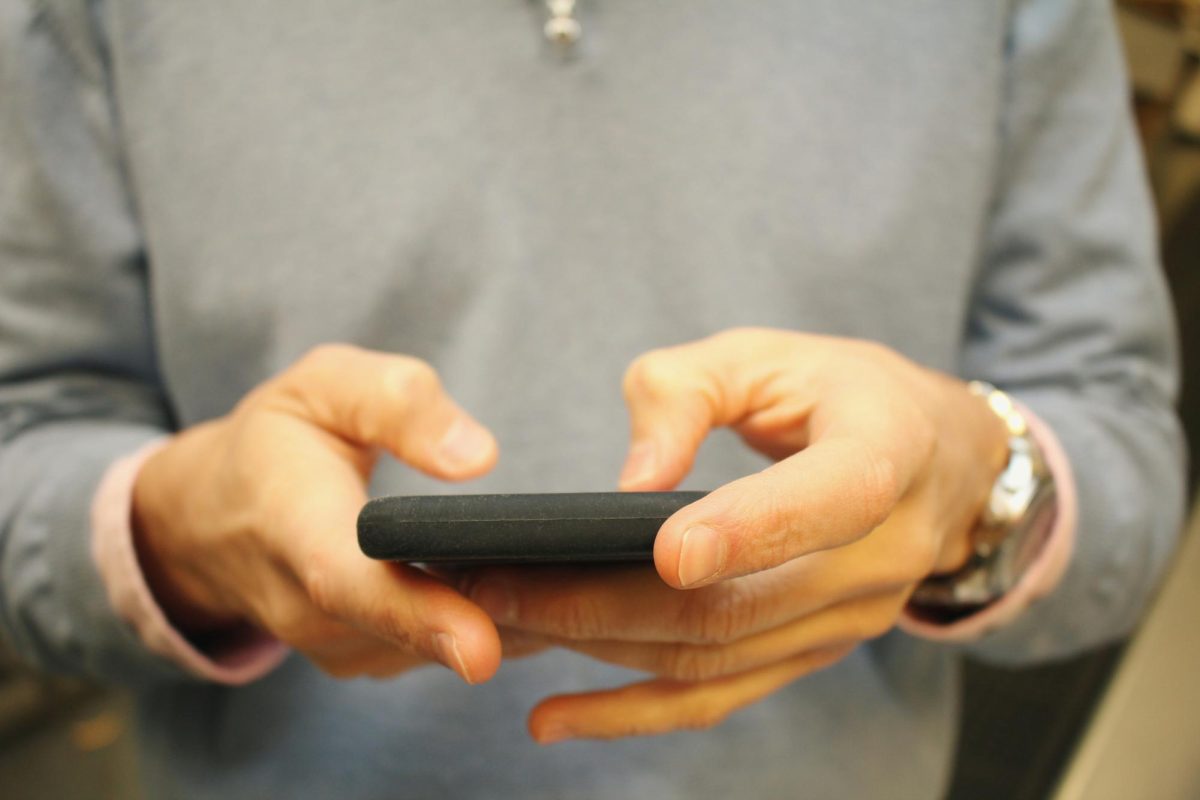This article was originally published in Kaleidoscope‘s Spring 2025 print edition. It is being published as a separate online article now for easy access.
At the beginning of the 2024-25 school year, a district-wide cellphone ban in classrooms was implemented in Three Village. Signs were placed in all classrooms reminding students not to use their cellphones in class and explaining the consequences of breaking the rule. Teachers stressed the new policy when going over their syllabi. The Code of Conduct was updated to include severe penalties for repeated usage.
This was not the first time the district had attempted to limit cellphones; over the last several years, various increasingly restrictive policies had been put into place. However, enforcement had proven challenging, with most of the work being delegated to individual teachers. Not wanting to lose class time, many decided to let slide various offenses. For the same reasons, enforcement of the new, strict ban dwindled throughout this academic year.
However, for the upcoming 2025-26 school year, control over the cellphone ban has left the district’s command, at least partially. In May, Governor Kathy Hochul announced that cellphones would be banned across all schools in New York State. This came after Hochul went on a listening tour across the state through which she gained feedback from teachers and parents about cellphone use. The ban will be “bell-to-bell,” meaning it would also prohibit the use of cellphones during non-academic periods such as lunches and study halls. Students will still be able to use school administered devices, and they will be able to contact family in case of emergency.
Hochul wanted to create a distraction-free school environment throughout the whole day, and not just classroom time; hence the “bell-to-bell” element of the plan. Hochul believes that students will be successful when they are “learning and growing, not clicking and scrolling,” and that her new cellphone policy will lead New York State in “protecting our kids in the digital age.”
However, there is no set plan in place for schools to enforce this ban, so the actual implementation of the ban has been left to district administrators. The state budget allocates $13.5 million to schools that cannot afford the solutions needed to follow the ban, but Three Village is unlikely to qualify for this state aid, given its general socioeconomic status.
Currently, it is unknown as to how Three Village will implement the cellphone ban for the 2025-26 school year. The Three Village Cellphone Committee, which helped design this year’s cellphone ban, will meet and decide how to enforce the cellphone ban. It is possible that they will simply refine the approach taken at the beginning of this year. On the other hand, the district could take a stronger stance on enforcement, ensuring that cellphones will not be used. What is known is that Three Village will not be utilizing magnetic phone pouches which students could not access until the end of the day. They have been popular in other districts, but, as was made clear during the May 13 Board of Education meeting, the district does not have enough room in the budget to allow for such a large purchase. All we know now is that the cellphone ban for the 2025-26 school year will be announced before the school year begins.
Most teachers at Ward Melville agreed that a cellphone ban needs to be implemented to improve the academic performance of students. However, teachers disagree with regards to its implementation. Ms. Jamie Bilek, a social studies teacher, stated that she agreed with the cellphone ban, but was “not sure that it needs to be in the [state] budget.” She argued that the funding for the ban could be utilized for other purposes such as teacher salaries, transportation and educational technology upgrades. In particular, some school districts might need more state aid in other, more important, areas. Ms. Bilek also wasn’t convinced on the necessity of state funding, saying, “There’s other ways to enforce [the cellphone ban] without it having to be a budget item.” Instead, Hochul could simply provide recommendations to schools as to how to enforce a cellphone ban without directly putting it in the budget, especially since schools across the state greatly vary. For example, many believe that larger schools, such as Ward Melville, will have a more difficult time transitioning to a cellphone free environment in comparison to smaller schools.
On the other hand, there are many teachers at Ward Melville that believe a cellphone ban needs to happen, even if it requires being implemented into the state budget. Mr. James Hein, an orchestra teacher at Ward Melville, stated that he is “all for banning cellphones in school.” Mr. Aaron Tam, a math teacher, said that the statewide cellphone ban is a “good plan” because of the academic disruption cellphone usage causes. Many teachers feel that they are competing with cellphones while teaching their students, and that cellphones typically win. Furthermore, many argue that removing cellphones from classrooms will create fewer distractions. When a teacher has to remind a student to put their phone away, it takes time away from instruction. If a teacher has to do so repeatedly, it takes more time away from students that are paying attention, causing additional distractions and disruptions.
The question remains whether the upcoming ban will be any more effective or successful than past bans. Many teachers hope that the mandate from the state will force the district to take the issue more seriously. In particular, English teacher Ms. Lisa Crispino argued that “teachers and administrators need more support in getting kids to refocus and put [their cellphones] away.” With Albany and the Governor’s Office throwing their full support behind a cellphone ban, Ms. Crispino is cautiously optimistic that she and her colleagues will receive the necessary assistance.
More broadly, teachers, parents and administrators have blamed cellphones for a general decline in academic performance over the last several years. Nationwide surveys and personal testimonials — one teacher said, “my students simply aren’t where they were 20 years ago, or even 10” — have pointed to worsening student achievement, though experts have made clear that cellphones are not the sole reason for this decline. While the devices have certainly contributed to problems, other factors such as the lingering effects of the pandemic, must also be considered.
Despite this, Ward Melville Principal John Holownia argued that “eliminating distractions like the cellphone could be an opportunity to allow students to be more engaged in their learning.” Some schools, including Ward Melville, have seen a return to the levels of student achievement seen prior to the pandemic, but a cellphone ban would still test whether or not cellphone use has a significant impact on student performance. Holownia made clear that “we’re always looking for ways to get better,” and that a cellphone ban, especially with support from the state, could do just that.









